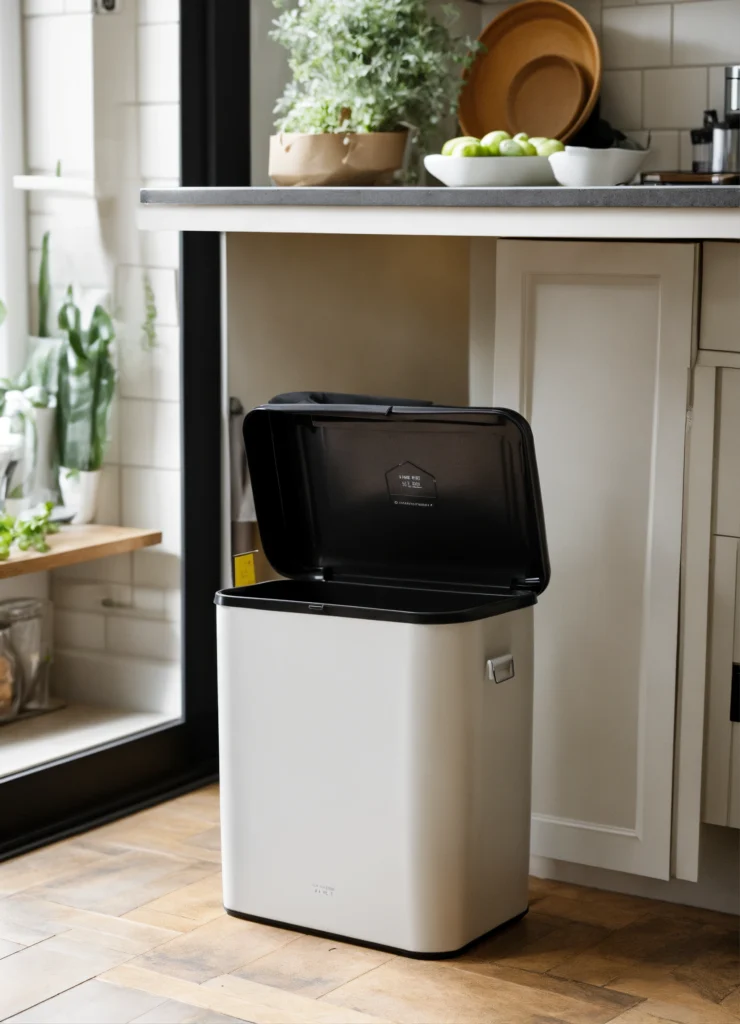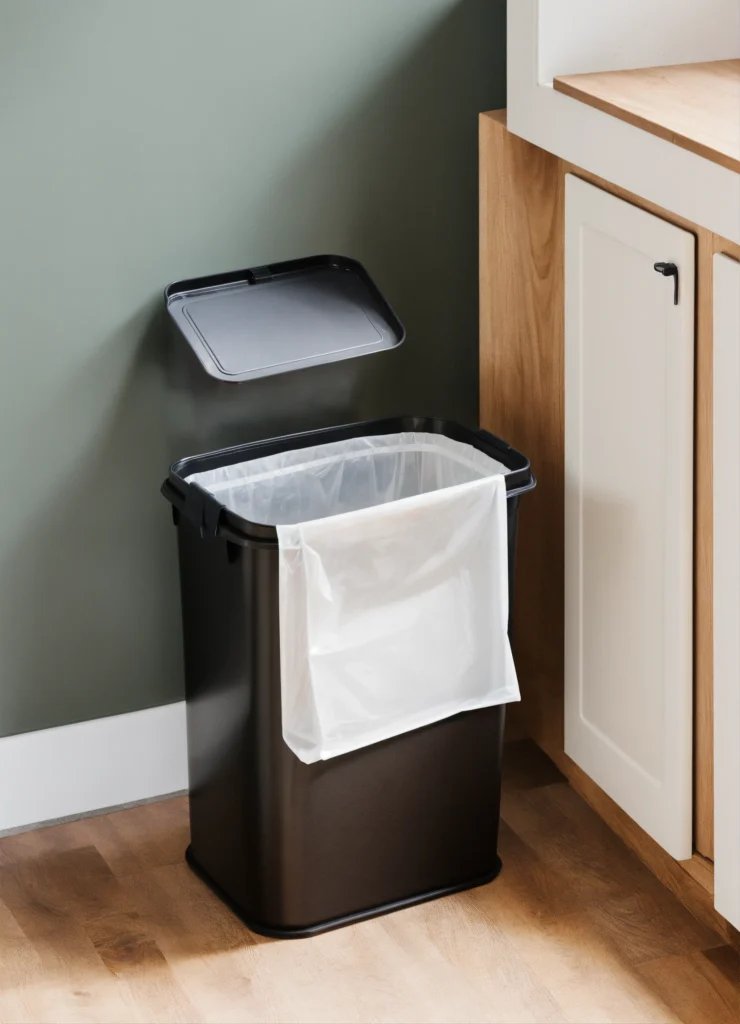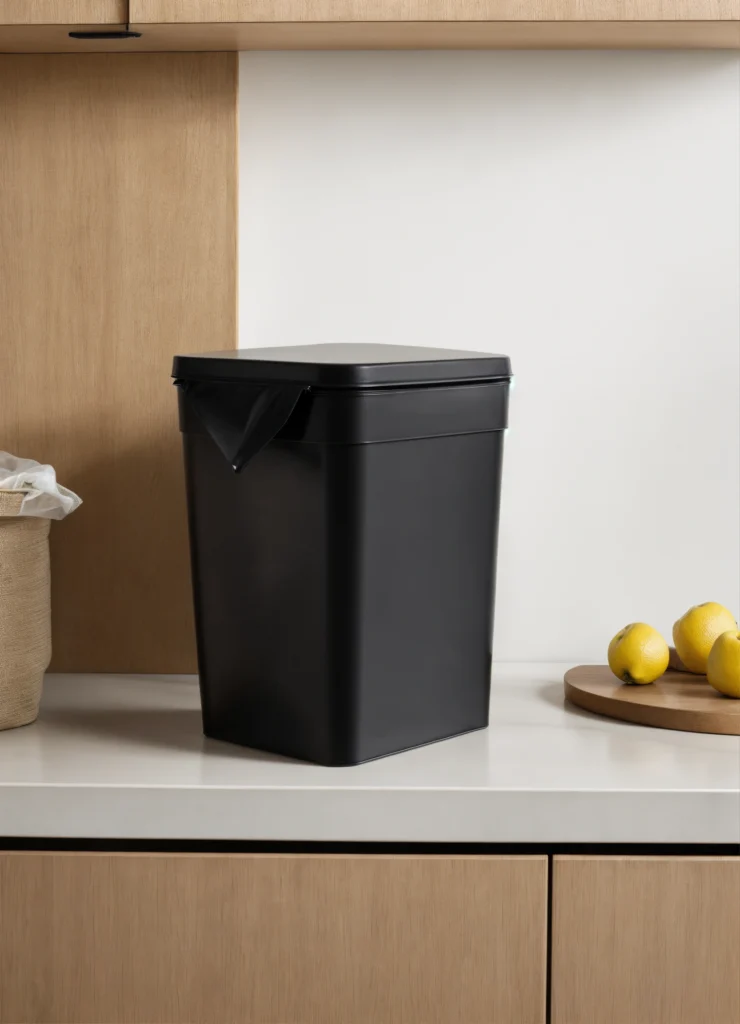The Rise of Smart Trash Cans: Merging Technology

In our increasingly tech-driven world, every aspect of daily life is being transformed, even tasks as mundane as waste management. Enter the smart trash cans, a next-gen innovation designed to elevate the simple act of throwing away garbage into a more efficient, hygienic, and eco-friendly process. These high-tech garbage bins are not only making homes and public spaces cleaner, but they’re also contributing to smarter, more sustainable waste management systems. But what exactly are smart trash cans, and how are they changing the way we think about waste disposal?
Index Blog Post:
- Introduction: The Rise of Smart Trash Cans
- Overview of the innovation and significance in waste management.
- What Are Smart Trash Cans?
- Definition and features of smart trash cans.
- Key technological elements like sensors, automation, and AI.
- Everyday Use of Smart Trash Cans
- Touchless operation for enhanced hygiene.
- Automated sorting of waste.
- Fullness alerts and monitoring systems.
- Odor control features.
- Pros and Cons of Smart Trash Cans
- Pros: Hygiene, convenience, sustainability, odor control, time-saving.
- Cons: Cost, maintenance, power dependency.
- Affordability
- Price ranges for different models.
- Costs for households vs. businesses.
- Future Use of Smart Trash Cans
- AI-powered sorting and analysis.
- Integration with smart city infrastructures.
- Self-powered trash cans.
- Health Benefits of Smart Trash Cans
- Touchless features promote hygiene.
- Odor control and air-purifying benefits.
- Interior Design and Aesthetic Appeal
- Stylish, modern designs to complement home and office interiors.
- Materials and colors that fit contemporary aesthetics.
- Conclusion: Are Smart Trash Cans Worth the Investment?
- Final thoughts on the value and future potential of smart trash cans.
What Are Smart Trash Cans?
A smart trash can is an advanced waste receptacle embedded with various sensors, automation features, and sometimes AI technology to improve efficiency and cleanliness. Unlike traditional trash bins, smart trash cans can detect when waste is nearby, automatically open and close, sort recyclables from regular trash, and even notify users when they are full or in need of maintenance.
These devices are not just about convenience but also play an essential role in promoting hygiene and waste management optimization. With features like odor control, touchless operation, and connectivity to smart home systems, smart trash cans are becoming a staple in modern homes, offices, and public spaces.

Everyday Use of Smart Trash Cans
The applications of smart trash cans extend beyond simply holding garbage. They can transform the entire waste disposal process through their innovative features.
1. Touchless Operation for Hygiene
One of the most significant advantages of smart trash cans is their touchless operation. By using motion sensors, these cans automatically open and close, ensuring you never have to physically touch the trash bin. This feature is especially beneficial in preventing the spread of germs, making smart trash cans perfect for homes, hospitals, and food service environments.
2. Automated Sorting
Some advanced models of smart trash cans come equipped with sensors that can differentiate between types of waste, automatically sorting recyclables from non-recyclables. This not only makes recycling easier for individuals but also supports larger environmental goals by reducing contamination in recycling streams.
3. Fullness Alerts and Waste Monitoring
Many smart trash cans are connected to apps or home systems, providing notifications when the can is full or when a waste pickup is required. This reduces the need for constantly checking if the trash can needs to be emptied, making it an efficient option for businesses, public spaces, and even large households.
4. Odor Control
Advanced smart trash cans also come with built-in odor-control mechanisms. These cans use air filters, deodorizing systems, or tightly sealed lids to trap unpleasant smells, ensuring your kitchen or office space stays fresh.

Pros and Cons of Smart Trash Cans
While smart trash cans offer numerous advantages, they are not without some drawbacks. Let’s take a look at both sides of the coin.
Pros:
- Enhanced Hygiene: Touchless operation prevents the spread of germs and bacteria.
- Convenience: Automated opening, closing, and fullness alerts make managing trash much easier.
- Sustainability: Some models help sort recyclables from regular waste, promoting eco-friendly disposal habits.
- Odor Control: Built-in systems keep your home or office free from unpleasant trash smells.
- Time-Saving: With automatic alerts for emptying and touchless features, you save time in waste management tasks.
Cons:
- Cost: Smart trash cans tend to be significantly more expensive than traditional bins, especially models with advanced features like waste sorting.
- Maintenance: High-tech features mean more parts that can malfunction. This may require regular maintenance or even technical assistance for repairs.
- Power Dependency: These cans either need batteries or a power source to operate, adding to the hassle of keeping them functional.

Affordability: What Does it Cost?
While smart trash cans offer convenience and tech-driven features, they come at a premium price. Basic models that offer touchless operation and odor control start around $50 to $100. More advanced models that include waste sorting, app connectivity, and advanced sensors can range from $150 to $500 or more.
For businesses, smart public trash cans with features like solar power, automatic waste compression, and real-time fullness tracking can cost upwards of $1,000. However, these models may offer cost savings over time by reducing waste collection frequency and promoting better waste management habits.
Future Use
The future of smart trash cans is incredibly promising, as advancements in AI, sensor technology, and environmental awareness continue to shape waste management systems.
1. AI-Powered Sorting and Analysis
Future smart trash cans could use advanced AI algorithms to not only sort waste but also analyze its content. This could help in identifying the types of waste most commonly thrown away, providing useful data for households, businesses, and municipalities. This data could be used to optimize waste reduction strategies, recycling programs, and even product design.
2. Integration with Smart Cities
As more cities adopt smart city technologies, smart trash cans will likely become part of larger urban waste management networks. Public trash bins could communicate with city management systems to automatically schedule pickups when they reach capacity, reducing labor costs and ensuring cleaner public spaces.
3. Self-Powered Cans
Some smart trash cans already utilize solar power to operate, but future models could become even more energy-efficient, requiring minimal maintenance and contributing to green energy initiatives.
Health Benefits
The health benefits of smart trash cans are significant, especially when it comes to promoting hygiene. Traditional trash cans are notorious for harboring bacteria, and the need to touch them frequently increases the risk of germ transmission. By introducing touchless operation and odor control, smart trash cans significantly reduce these health risks.
For those in healthcare or food service industries, these cans can make all the difference in maintaining sterile environments. Additionally, with air purifying filters, these trash cans help to reduce allergens and airborne contaminants, contributing to overall healthier living or working spaces.
Interior Design and Aesthetic Appeal
Apart from their functionality, smart trash cans are designed to fit into modern interior spaces seamlessly. Gone are the days when trash bins had to be hidden away due to their unattractive appearance. Smart trash cans come in sleek, stylish designs made from stainless steel, glossy plastics, or other high-end materials that complement contemporary kitchens, offices, or public spaces.
Their minimalist design and compact form factor make them easy to place in visible areas without detracting from the aesthetic of the room. Whether you want a bin that blends into the background or a bold statement piece that adds to your interior design, there’s a smart trash can to match your style.
Conclusion: Are Smart Trash Cans Worth the Investment?
In conclusion, smart trash cans represent the next step in waste management technology, combining convenience, hygiene, and sustainability in a sleek, modern package. While they may come with a higher price tag than traditional trash bins, the added features such as touchless operation, odor control, and automatic sorting can save time and promote healthier environments.
As we look toward the future, smart trash cans will likely continue to evolve, offering even more innovative solutions for households, businesses, and public spaces. From AI-powered sorting to integration into smart city infrastructure, the potential for these devices is enormous. Whether you’re concerned with hygiene, environmental impact, or simply making life a bit easier, smart trash cans offer a compelling and practical solution for modern waste disposal.
Read More:
Ultimate Guide to Smart Bins – Evreka
Create a Fun and Engaging Paper Plate Lion Craft with Creative Collective





Can you be more specific about the content of your article? After reading it, I still have some doubts. Hope you can help me.
Can you send your questions?